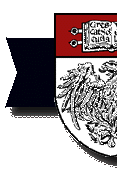|
Interview:
Bert Cohler
An
alumnus of and professor in the College discusses the impact of
curricular change--and curricular tradition
Bert Cohler,
AB'61, the William Rainey Harper professor in the College, serves
on the College Council, the ruling body for the College on all matters
of curriculum and instruction. As spokesperson of the Committee
of the College Council, Cohler functions as the "voice of the faculty."
Here, Cohler-who has taught the Common Core sequence Self, Culture,
and Society for 25 years-discusses changes in the undergraduate
curriculum, approved by the Council in March ("Chicago Journal,"
April/98) and scheduled to go into effect in autumn 1999:
When
you talk with alumni about the changes in the undergraduate curriculum,
what do you hear?
Alumni are
worried that we've "dumbed down" the College; that we've moved away
from the tradition of general education; that we've sold our birthright;
and that it's not the College they remember.
My colleague
Don Levine, who's also an alumnus of our College [AB'50, AM'54,PhD'57],
once said to me, "Everybody remembers with fondness the curriculum
they had." When talking with alumni, I try to explain that we're
very much true to that same curriculum, in terms of our traditions:
in our focus on careful reading of texts and on writing, on analytic
thinking.
The philosophy
of general education has not changed, nor the belief in general
education, but the content is going to change over time-as befits
larger changes in the real world. For example, in 1957, when I came
to the College, we didn't worry about cloning or the ethical issues
therein. That's changed.
Alumni often
ask, "Are today's undergraduates different?" I've been chair of
the College faculty admissions committee for some years, and I can
say with great assurance that the quality of Chicago undergraduates
has not changed. They may dress differently, but the students of
today are as passionately committed to learning as when I was an
undergraduate. In my four years as a resident head in Linn House,
from 1990 to 1994, students would sit around my apartment and argue
with great passion whether Thucydides was a better historian than
Herodotus. As long as our students are worrying about those issues,
I don't worry about changes in the College.
How
does the new curriculum compare with the College curriculum as you
knew it?
The College
I was a part of was a much less arduous and difficult college than
the one of the present day because the readings had been selected
in a way consonant with students many of whom were equivalent to
students in the third or fourth year of high school. In 1957, the
curriculum was the three-year series of three-course sequences in
the humanities, social sciences, and natural sciences, with two
yearlong capstone courses-the History of Western Civilization and
Organization, Methods, and Principles of Knowledge, called OMP.
There was already
some rumbling that the old College was being watered down, in the
sense that there were now departmental degrees along with College
degrees. Over the postwar period, the academic disciplines became
ever more professional, and faculty began identifying as much with
their academic discipline as with the University of which they were
a part. It became more and more difficult to get faculty willing
to teach general-education courses. There was a tug of war between
the expectations of the disciplines and the expectations of general
education.
In
the past, how did the College and the University deal with the tug
of war between disciplines and general education?
Since 1892,
faculty at Chicago have been recruited with the understanding that
they would have a reduced teaching load and be free to carry out
their own work. There has always been a tension between faculty
understanding that at Chicago one has greater freedom than one has
at other universities-it's the ideology of the University-and the
demands for undergraduate teaching.
I don't know
of a faculty in the country as passionately committed to undergraduate
education as Chicago is. We're not always of one mind, but we all
agree it's important. We think there's an advantage in coming to
a liberal-arts college in a great university: One can have the best
of both worlds.
The faculty
is going to have to consider the priorities at a changing time-a
time when the professoriate is under considerable pressure, when
the public doesn't understand exactly what we do. We want to ensure
that professors are still passionately in love with their own writing,
their own research, because at Chicago what motivates us is our
zeal for what we do in our scholarly work. Without at all compromising
that, the faculty has got to own its undergraduate curriculum.
Over the tumultuous
period of 1965-67, the decision was made by [then] President Levi
and the faculty to reduce the scope of the undergraduate general-education
program and to eliminate a separate College faculty. In other words,
the College faculty became a faculty of the University, with responsibility
for instruction shared across departments.
The advantage,
of course, was that the College was brought much more closely into
alignment with the interests of the departments in graduate education.
The disadvantage was that we lost our identity as a College and,
to some extent, we lost the opportunity to make appointments of
some significant scholars whose commitment was principally to general
education rather than their academic specialties.
From 1967 to
1984, we tried a program with a reduced general-education component
and an increased departmental focus, although lacking departmental-level
introductory courses. Students were expected to move directly from
the College's general-education courses into rather sophisticated
course offerings. During this period we moved toward a series of
course reading lists in our general-education courses-still thematically
organized, still involving significant texts in the humanities,
social sciences, and natural sciences-but also focusing much more
on contemporary scholarship than was reflected in the traditional
Chicago syllabi.
In 1984, under
Don Levine's deanship, there was a reexamination of the Levi curriculum
(Project 84) and a move toward increased focus on language and civilization,
and other-than-text courses-art, music, and theater. Then, in 1992-93,
under John Boyer's leadership, we began to reconsider Project 84.
Project 84
had created a curriculum that was not teachable. There were simply
too many demands on faculty, given a faculty that is not increasing
in size and an even larger College, to staff those courses. And
to use graduate students as teachers in large numbers is just against
the Chicago tradition.
What
would you term the faculty's primary concern in fashioning the revised
undergraduate curriculum?
We've had to
make some judicious choices about a curriculum for which faculty
feel enthusiasm and which students find engrossing and useful in
their own intellectual development. As long as we keep our eyes
on that tension, we're in good shape.
The curriculum
we've created maintains the focus of general education in terms
of learning how to read critically and analytically and how to write,
while allowing students somewhat more latitude to take the kinds
of elective courses which they seek.
What the College
Council did in voting in the new curriculum was to build a structure
with the understanding that the faculty of the collegiate divisions
in the physical and natural sciences, as well as the humanities
and social sciences, would undertake careful review and come up
with exciting new courses.
The College
has got to be organic. It can't be a fossil of the past. But it
must maintain a focus on learning careful reading and criticism
and writing within a discussion context in which, in my mind, the
fair question to ask of the instructor, and for the instructor to
ask of the students, is, "Where in the text do you see that?"
It's the focus
on what we do and the way we do it that makes us distinctive.
Do
you think the quality of the College curriculum will be affected
by the planned increase in the number of undergraduate students?
As a faculty
member, my concern is much less with the numbers than with the quality
of the students. We have to find another 700 students of the sort
we want to teach.
Our students
have enormous intellectual intensity. They love learning, and they
love life. I have students on the baseball team and the football
team and swimmers, and I have students in the theater, and I have
students volunteering in political-action groups of both the right
and the left. This has never been a place where one just studies.
With all of
these resources in extracurricular life, there is intellectual intensity,
but there is also a richness of living. It's precisely the tension
between text-based courses and urban opportunities-including the
new internships that have been created-that permits students to
put together a curriculum of unusual richness and flexibility. Is
this the Utopian curriculum?
No, but it's
the best undergraduate general-education curriculum among the American
research universities. The curriculum we've approved is meant to
maintain that standard.
|



